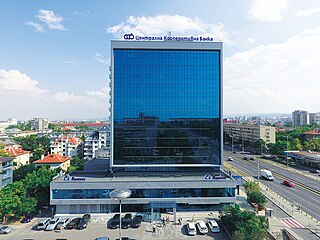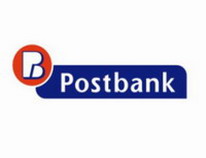
The Federal Deposit Insurance Corporation (FDIC) is one of two agencies that provide deposit insurance to depositors in U.S. depository institutions, the other being the National Credit Union Administration, which regulates and insures credit unions. The FDIC is a United States government corporation providing deposit insurance to depositors in U.S. commercial banks and savings banks. The FDIC was created by the 1933 Banking Act, enacted during the Great Depression to restore trust in the American banking system. More than one-third of banks failed in the years before the FDIC's creation, and bank runs were common. The insurance limit was initially US$2,500 per ownership category, and this was increased several times over the years. Since the passage of the Dodd–Frank Wall Street Reform and Consumer Protection Act in 2011, the FDIC insures deposits in member banks up to US$250,000 per ownership category.

Financial services are the economic services provided by the finance industry, which encompasses a broad range of businesses that manage money, including credit unions, banks, credit-card companies, insurance companies, accountancy companies, consumer-finance companies, stock brokerages, investment funds, individual managers and some government-sponsored enterprises. Financial services companies are present in all economically developed geographic locations and tend to cluster in local, national, regional and international financial centers such as London, New York City, and Tokyo.

BNP Paribas S.A. is a French international banking group. It is the world's 8th largest bank by total assets, and currently operates with a presence in 72 countries. It was formed through the merger of Banque Nationale de Paris (BNP) and Paribas in 2000, but has a corporate identity stretching back to its first foundation in 1848 as a national bank. It is one of three major international French banks, along with Société Générale and Crédit Agricole. The group is listed on the first market of Euronext Paris and a component of the Euro Stoxx 50 stock market index, while it also included in the French CAC 40 index.
The Australian financial system consists of the arrangements covering the borrowing and lending of funds and the transfer of ownership of financial claims in Australia, comprising:
A cashier's check is a check guaranteed by a bank, drawn on the bank's own funds and signed by a cashier. Cashier's checks are treated as guaranteed funds because the bank, rather than the purchaser, is responsible for paying the amount. They are commonly required for real estate and brokerage transactions.
Deposit insurance is a measure implemented in many countries to protect bank depositors, in full or in part, from losses caused by a bank's inability to pay its debts when due. Deposit insurance systems are one component of a financial system safety net that promotes financial stability.
A custodian bank, or simply custodian, is a specialized financial institution responsible for safeguarding a firm's or individual's financial assets and is not engaged in "traditional" commercial or consumer/retail banking such as mortgage or personal lending, branch banking, personal accounts, Automated Teller Machines (ATMs) and so forth. The role of a custodian in such a case would be to:
A guaranteed investment contract (GIC) is a contract that guarantees repayment of principal and a fixed or floating interest rate for a predetermined period of time. Guaranteed investment contracts are typically issued by life insurance companies qualified for favorable tax status under the Internal Revenue Code. A GIC is used primarily as a vehicle that yields a higher return than a savings account or United States Treasury securities and GICs are often used as investments for stable value funds. GICs are sometimes referred to as funding agreements, although this term is often reserved for contracts sold to non-qualified institutions.

Central Cooperative Bank, founded on 28 March 1991 is a universal commercial bank in Sofia, Bulgaria, belonging to the financial structure of CCB Group. It is listed on the Bulgarian Stock Exchange.

The Korea Deposit Insurance Corporation (KDIC) is a deposit insurance corporation, established in 1996 in South Korea to protect depositors and maintain the stability of the financial system. The main functions of KDIC are insurance management, risk surveillance, resolution, recovery, and investigation.
UKRSIBBANK BNP Paribas Group is a commercial bank based in Ukraine. UKRSIBBANK has been operating in the Ukrainian market since 1990. It operates network of 300 branches and 1000 ATMs throughout Ukraine, for 1.9 million customers all around Ukraine, 165,000 SME's companies and 2,200 large corporate companies. The bank has been a subsidiary of French International bank BNP Paribas since 2006.

A bank is a financial institution that accepts deposits and recurring accounts from the people and creates Demand Deposit. Lending activities can be performed either directly or indirectly through capital markets. Due to their importance in the financial stability of a country, banks are highly regulated in most countries. Most nations have institutionalized a system known as fractional reserve banking under which banks hold liquid assets equal to only a portion of their current liabilities. In addition to other regulations intended to ensure liquidity, banks are generally subject to minimum capital requirements based on an international set of capital standards, known as the Basel Accords.
The New York State Banking Department was created by the New York Legislature on April 15, 1851, with a chief officer to be known as the Superintendent. The New York State Banking Department was the oldest bank regulatory agency in the United States.

Ageas is a Belgian multinational insurance company co-headquartered in Brussels. Ageas is Belgium's largest insurer and operates in 14 countries worldwide. The company was renamed from Fortis Holding in April 2010 and consists of those insurance activities remaining after the breakup and sale of the financial services group Fortis during the financial crisis of 2007-2010.
A systemically important financial institution (SIFI) or systemically important bank (SIB) is a bank, insurance company, or other financial institution whose failure might trigger a financial crisis. They are colloquially referred to as "too big to fail".

Postbank, legally known as Eurobank Bulgaria AD, is a universal bank in Bulgaria.
The Banking Union in the European Union is the transfer of responsibility for banking policy from the national to the EU level in several countries of the European Union, initiated in 2012 as a response to the Eurozone crisis. The motivation for banking union was the fragility of numerous banks in the Eurozone, and the identification of vicious circle between credit conditions for these banks and the sovereign credit of their respective home countries. In several countries, private debts arising from a property bubble were transferred to sovereign debt as a result of banking system bailouts and government responses to slowing economies post-bubble. Conversely, weakness in sovereign credit resulted in deterioration of the balance sheet position of the banking sector, not least because of high domestic sovereign exposures of the banks.
Taxes in Bulgaria are collected on both state and local levels. The most important taxes are collected on state level, these taxes include an income tax, social security, corporate taxes and value added tax. On local level property taxes as well as various fees are collected. All income earned in Bulgaria is taxed on a flat rate of 10%. Employment income earned in Bulgaria is also subject to various social security insurance contributions. In total the employee pays 12.9% and the employer contributes what corresponds to 17.9%. Corporate income tax is also a flat 10%. Value-Added Tax applies at a flat rate of 20% on virtually all goods and services. A lower rate of 9% applies on only hotel services.
The Uganda Deposit Protection Fund (UDPF) is a Ugandan government agency that provides deposit insurance to depositors in Ugandan banks and deposit-taking microfinance institutions. The UDPF was created in July 1994. The law was amended in 2004 to create an independent agency, separate from the Bank of Uganda.